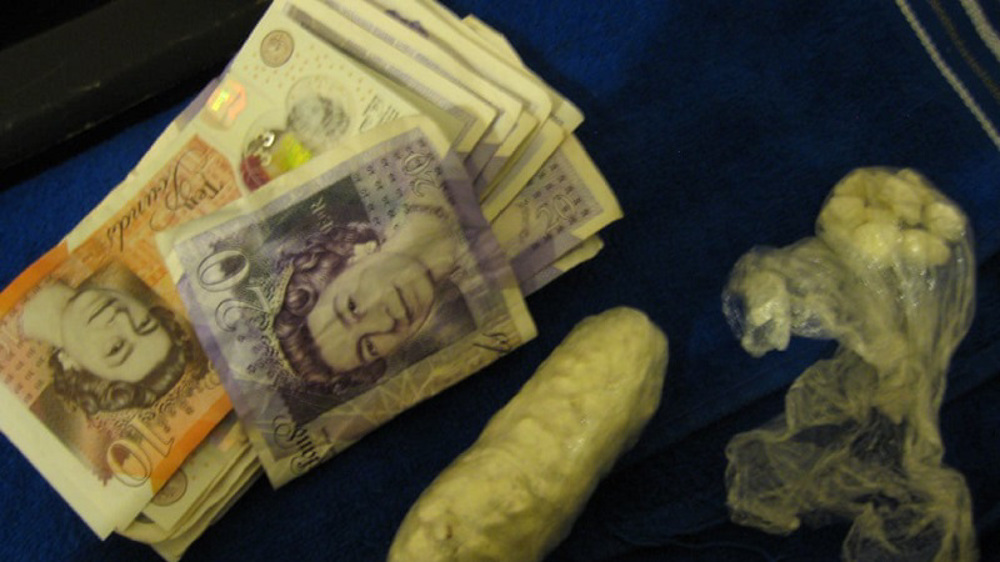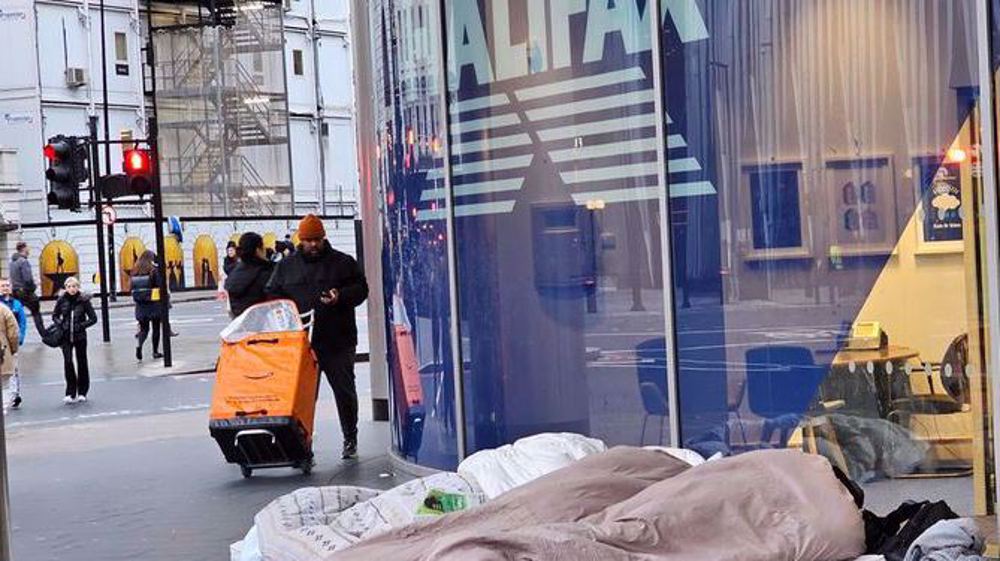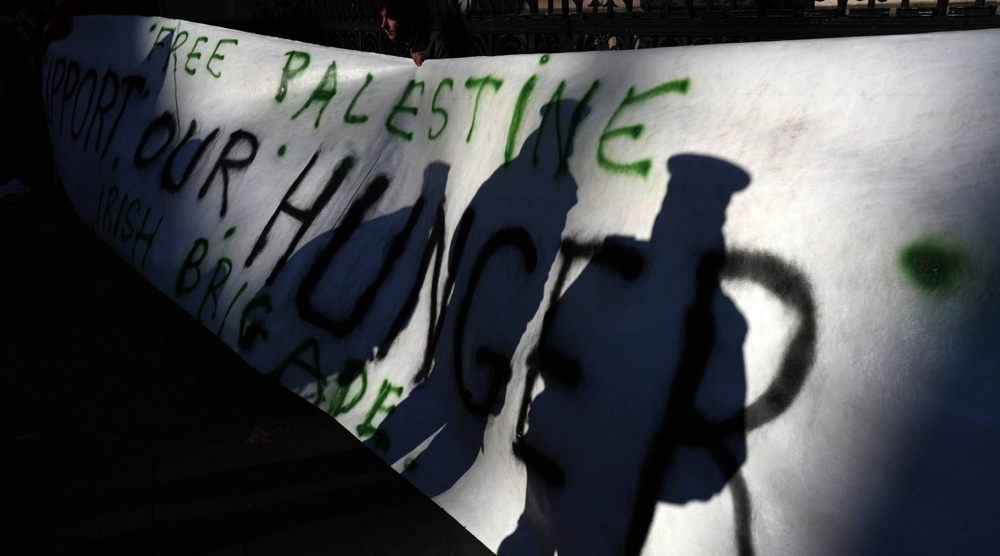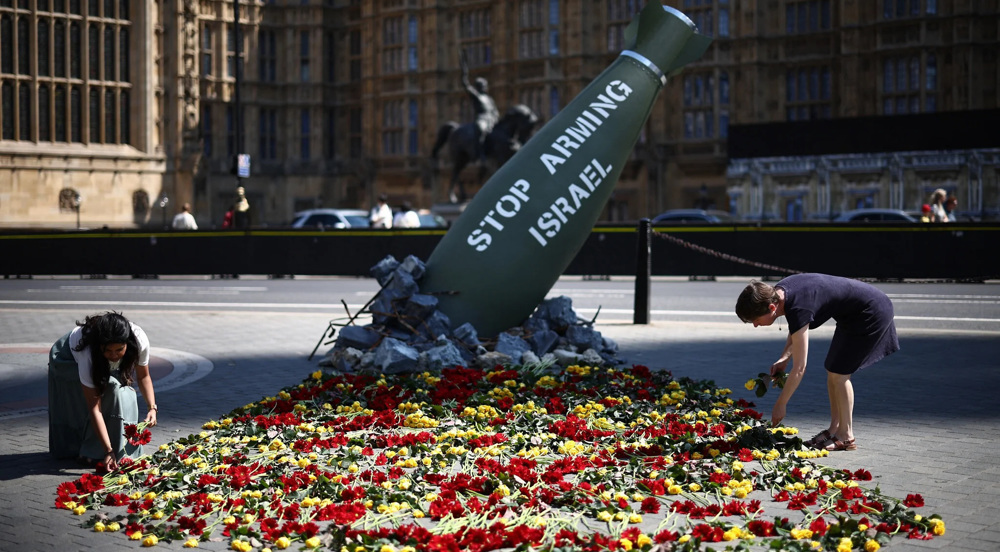Drug couriers disguised as key workers during COVID-19 lockdown in UK
Young drug mules disguised as nurses and Deliveroo workers were utilized by criminal gangs to deliver cocaine, heroin and illegally acquired prescription drugs during coronavirus lockdown, according to a senior officer in charge of tackling county lines dealing at one of the UK’s biggest police forces.
The name "county lines" refers to the phone numbers, or lines, that criminal gangs which traffic drugs from urban to rural areas use to organize the sale of their wares. Gangs in cities such as London, Birmingham and Liverpool use children to deal mostly heroin and crack cocaine over a network of dedicated mobile phones to smaller towns and rural areas.
Drug lords in Liverpool, obliged to return home during lockdown, were operating a “click and collect” service for couriers disguised as key workers to travel in and out of the region with drugs, according to Supt Andy O’Connor of Merseyside police.
He contends that the looming recession, exacerbated by high unemployment, could make it easier for criminal groups to recruit vulnerable people and their families as lockdown is eased.
In an interview with The Guardian, O’Connor said lockdown had made it much harder to move drugs and money around the country.
He said, “The majority of our crime groups had to come back into force, to come back to the Liverpool and Merseyside area. What you still had in the importing forces was the demand for class A drugs. In a way, what we saw was a ‘click and collect’ service for drugs.
“What we had, anecdotally, was people leaving the area to deliver drugs. People were dressed as key workers, we’ve got evidence to show there were people stop-checked purporting to be nurses or Deliveroo drivers. Crime groups are clever and ingenious. They still want to deliver their commodity, there’s still a significant amount of money to make."
In the past, county lines dealers would send off their couriers, on coaches and trains, to deliver drugs and money to smaller towns and cities, but with public transport usage reduced during lockdown, the gangs had to change tack, said O’Connor. Some young people were caught by British Transport Police on trains but others were transported by car, sometimes driven by their relatives.
O’Connor also said, “If you are a clever crime group you force a woman to drive a car. Put yourself in the shoes of a crime group leader of a drug gang: use vulnerable women to move your drugs and cash. They don’t look like your stereotypical drug dealer wearing dark clothing, North Face coats, hoods up, baseball caps on. That sticks out like a sore thumb. If you force the mothers, the sisters, the grandmothers to do the drug dealing on their behalf, where there’s debts to be paid off, it’s an easy way to move drugs around the country.”
Drastically reduced imports raised the price of cocaine from £30,000-£35,000 to £45,000-£50,000 a kilo, he said. Rather than increasing the price at street level, dealers cut the drugs or switched to selling prescription drugs acquired illegally.
“We have seen a significant reduction in the quality and purity,” O’Connor said. “In certain locations outside of Merseyside we know because of lockdown they have been unable to get hold of class A and class B drugs, so some users have been resorting to prescription drugs.”
There are 97 active county lines operating from Merseyside, police figures show. After London, Merseyside’s drug gangs are the second biggest exploiters of young people, grooming children as young as 10, according to the Merseyside Violence Reduction Partnership, MVRP.
The MVRP has launched a public information campaign warning people of the signs of criminal exploitation, how children are groomed by older dealers who buy them targeted gifts of clothes, food and bikes, making them feel indebted and part of the gang or “family”.
O’Connor said, “The people need to realize these people are grooming people the same way sex offenders are. They worm their way into people’s lives. ‘I’ll do you a favour,’ that sort of thing. Vulnerable people are being threatened with significant harm, either to themselves or family members. They will threaten to sexually assault family members.”
Upon sufficient grooming, the children are sent away to other parts of the UK to sell their drugs, often hundreds of miles from home.
The likely recession could put more people at risk of county lines gangs, said O’Connor. “That’s why what we are doing with Eyes Open isn’t just trying to arrest the drug dealers, it’s helping the people who are being threatened, who are being forced to do this, to put these preventative measures in place. We want to give people different pathways and opportunities to help themselves.”
One killed as Israeli airstrike hits southern Lebanon amid truce breaches
Iran says it has enough deterrence without nukes
EU’s IRGC listing shows elite force effective in foiling Israeli plots: Yemen
VIDEO | Europe hostile move against IRGC
VIDEO | Zionists against the NHS
Trump compromised by Israel, Epstein files reveal
Iran, China, and Russia to hold joint naval exercise
Leader visits Imam Khomeini’s mausoleum ahead of 47th anniversary of Islamic Revolution












 This makes it easy to access the Press TV website
This makes it easy to access the Press TV website